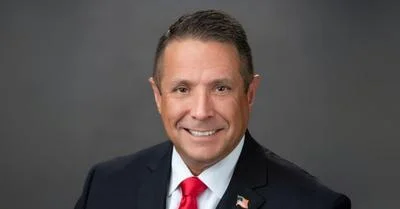Members of the Labor, Commerce, and Industry Special Subcommittee discused S-910 in front of a crowd. | Committee video screenshot
Members of the Labor, Commerce, and Industry Special Subcommittee discused S-910 in front of a crowd. | Committee video screenshot
In a packed hearing room at the Gressette Building on Wednesday, Feb. 7, the Labor, Commerce, and Industry Special Subcommittee convened to deliberate an amendment to S-910, a bill that would regulate and potentially restrict small dollar loans in South Carolina.
The hearing underscored the considerations surrounding governmental oversight of the private sector as stakeholders continue to voice divergent perspectives. On the table was a proposed amendment meant to clean up S-910, which would impose restrictions on how lenders market services to households and which households can be targeted.
Industry representatives have raised concerns about how the bill depicts their practices and emphasized its unintended effects, including the risk of potential redlining, due to its stringent restrictions on the neighborhoods where lenders can advertise.
The consideration of S-910 has taken on a different context after a report by the Greenville Leader revealed that one of the bill’s main proponents is the Self-Help Credit Union, which has garnered over $2 million in funding from left-wing political activist George Soros.
An IRS report revealed that the funds were directed to the Center for Responsible Lending, an advocacy arm of the Self-Help Credit Union. This information surfaces amidst lobbying efforts by the Soros-backed center in support of S-910.
Sen. Wes Climer (R-York) emphasized the necessity for thorough revision before enacting the bill.
“There are some in the Senate, I'm certainly among them, who believe this bill requires substantially more work and revision before it could be enacted,” Climer said at the hearing. “Some of those provisions now at the outset, I'll just say we ought to be very careful with the ways in which the government interferes in the private sector. And one of the things that historically has yielded the greatest results for consumers.”
Climer added that the bill will result in fewer credit options for South Carolinians.
“My conclusion as someone who was in the financial service industry is that the net effect of this will be less credit availability for people who need it,” he said. “We've heard testimony from lots of other states, from folks who've cited actions that have happened in other states. And I would just submit to you those actions that happened in other states certainly.”
Sen. Tom Davis (R-Beaufort), the committee’s Chairman and the sponsor of S-910, acknowledged Climer's concerns.
“I told Senator Climer that I respect and understand his views in this matter,” Davis said. “I think he understands he respects my views on this matter. I think at some point in time, if it gets on on the Senate calendar, there's going to be a discussion among the members as to what the appropriate line should be in this state.”
Sen. Katrina Shealy (R-Lexington) expressed support for the legislation, acknowledging dissenting voices among the attendees.
Shealy's comments highlighted the contentious nature of the proposed regulation.
“I agree with what we're doing here. I know that a lot of you don't agree with it or you wouldn't be here,” she said.
Sen. Ronnie Saab (D-Williamsburg) contributed to the discourse by noting the Senate's role in commerce regulation.
“I live in the Senate and we're interfering every single day. I think the question is, when is interference appropriate and when is it not?” Saab said.
Dan Walters, CEO of Credit Central LLC, strongly opposes S-910, arguing it will drastically reduce access to safe credit.
Walters told the Greenville Leader that the composition of the committee may be pre-disposed to pass the bill through.
“I think that at least the legislators that are on this ad hoc committee, again, a committee that was it was pieced together by, a chairman that is sponsoring this bill and seems to be falling under, an insurmountable amount of pressure from the proponent, lobbyist as well as the media,” Walters said.
“They just need to understand what this bill really is about. And what it's really about is, is removing a safe installment credit product from a demographic that benefits from those products and allowing credit unions to supplant that product with a much more dangerous and unstructured revolving credit problem that puts consumers assets at risk.”
Walters contends the bill unfairly favors credit unions and banks, giving them an advantage in offering potentially risky revolving credit accounts while hindering installment lenders' ability to reach customers.
He also raised concerns about the bill's constitutionality and its adverse effects on small-dollar credit access, suggesting it may expose vulnerable citizens to predatory practices.
Walters emphasized the flawed understanding of different credit models and urged legislators to reconsider the bill's implications, particularly its impact on low-income residents.
The classification of approximately 45 percent of South Carolina's census tracts as "low income" under S-910 evokes memories of risk assessments reminiscent of those prior to the Equal Credit Opportunity Act of 1974.
The bill prohibits lenders from distributing marketing materials to this segment of the state, which poses significant implications for lending outreach and access to financial services in these areas.
“That is a completely unintended consequence, antithetical to what I know what the goals are,” Danielle Arlowe, senior vice president at the American Financial Services Association, told lawmakers. “But that certainly is the definition of redlining.”






 Alerts Sign-up
Alerts Sign-up